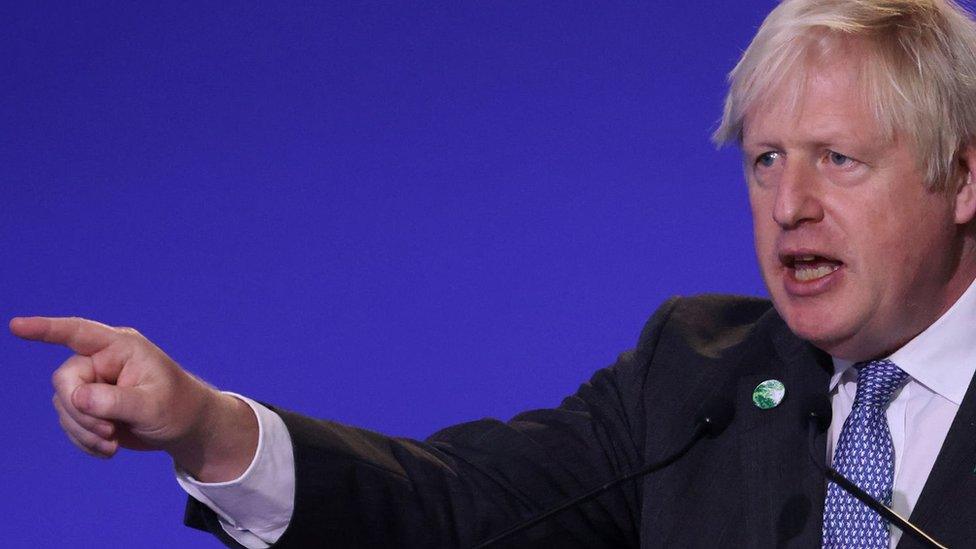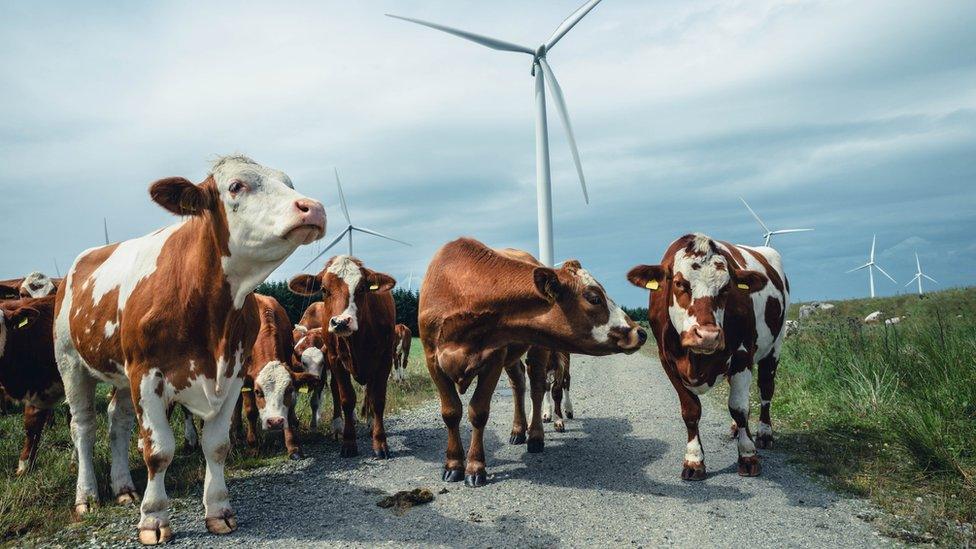Climate change: Irish government lays out Climate Action Plan
- Published
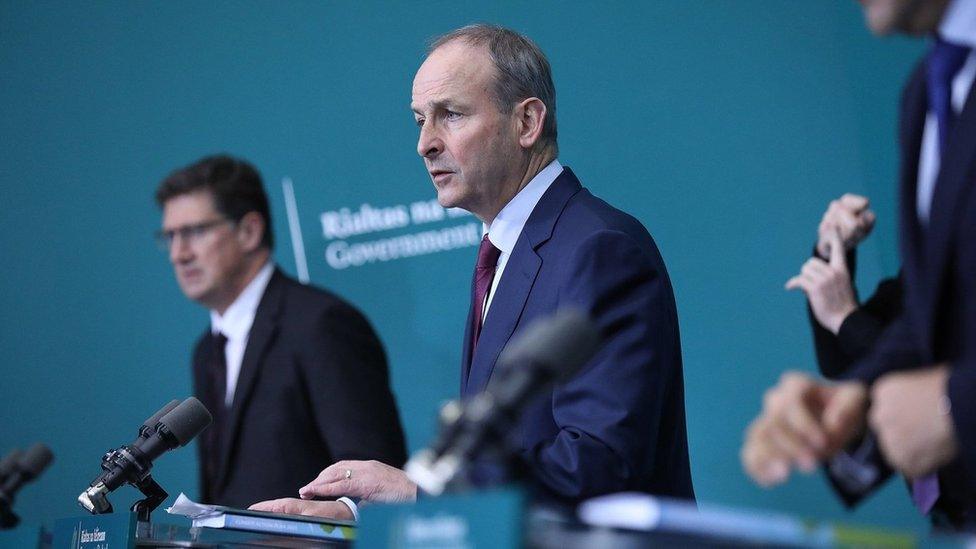
Announcing the Climate Action Plan, the Taoiseach Michéal Martin said it was time to 'step up'
The Irish government has published its Climate Action Plan which aims to reduce greenhouse gas emissions by 51% by the year 2030.
The programme will cost €125bn (£107bn), with a combination of public and private sector investment.
Taoiseach (Irish PM) Michéal Martin has described it as an "important moment".
The plan, which runs to more than 200 pages, lists a range of emissions reductions for multiple sectors, rather than specifying precise figures.
Those will be laid out next year after the Oireachtas (Irish Parliament) passes a Carbon Budget,
Mr Martin said: "We will of course debate the various elements of our plan, but on the requirement for urgent action, there is no debate. Failure to act now is not an option."
Wind and solar energy
The Climate Action Plan seeks a cut in electricity emissions of between 62%-81%.
It says there will be a phasing out of coal and peat-fired electricity generation and wind and solar energy will account for 80% of Ireland's energy supply by the end of the decade.
Homeowners, farmers, businesses and communities will be able to avail of support schemes to help them generate their own electricity and sell any over-supply back to the grid.
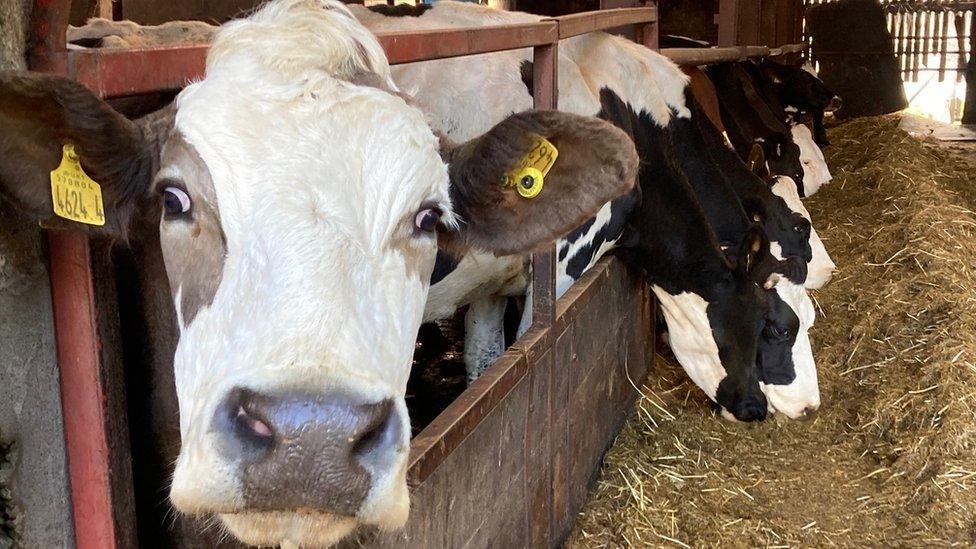
Ireland's agriculture industry will be asked to reduce its emissions by between 22%-30%
Animal herd sizes
The agriculture sector will be asked to reduce its emissions by 22% to 30%.
The plan calls for an improvement in animal breeding and feeding practices, as well as big reductions in the use of chemical nitrogen fertilisers.
When asked about the issue of animal herd sizes on farms, the Taoiseach said: "The government will work with farmers to secure even more efficiencies. The key objective is reducing emissions - not counting cattle."
Time to 'step up'
The plan envisages a cut in transport emissions of between 42% and 50%.
It calls for half a million daily journeys to be completed by walking, cycling, or using public transport.
All buses will be replaced with electric vehicles by 2035 and the length of electrified rail will be tripled.
Mr Martin said the plan would be "transformational".
The "time to step up is now" and "we all must have the collective courage to do so".
Phasing out fossil fuel heating
The aims to phase out fossil fuels for "space and water heating in all new buildings" and will establish a national retrofit plan to provide loans and grants to those in older homes and buildings.
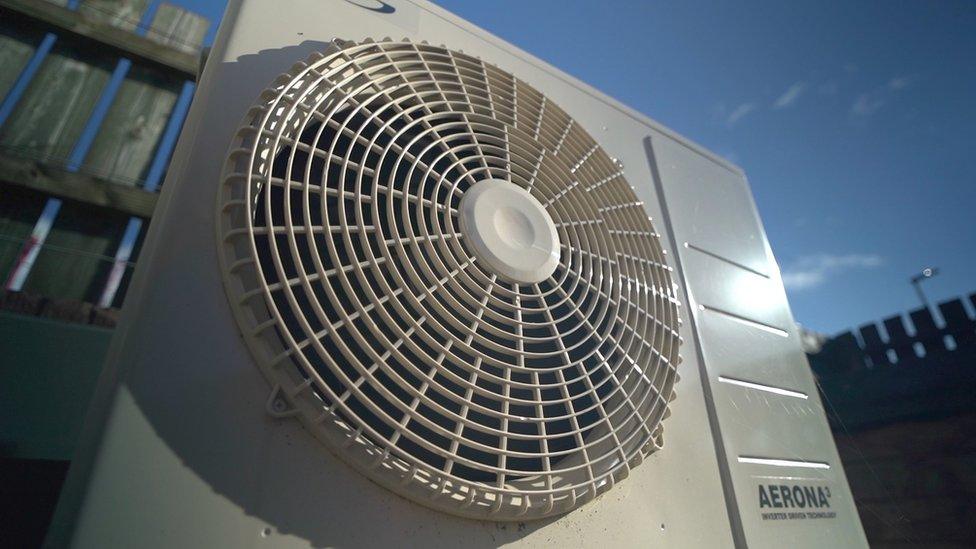
The plan calls for ending the use of fossil fuels to heat homes, in favour of carbon neutral options like heat pumps
It calls for the use of electric heat pumps and other low carbon technology to be promoted in new and existing buildings.
The Taoiseach added: "As I said in Glasgow, the scale of the challenge is unprecedented, but it is not too late to act.
"It is now crystal clear that we need to dramatically reduce the amount of greenhouse gases we are putting into the atmosphere, to have hope of limiting temperature rise to 1.5C, keep our ecosystems functioning and ensure that our planet is safe and liveable for generations to come."
Profound changes
He said the effects of climate change would have a "massive negative economic impact on Ireland".
Mr Martin said: "I recognise that the transition to climate neutrality no later than 2050 will require a profound change in the practices and sectors that support our lifestyle.
"Our homes, workplaces, communities must all adapt but the benefits to all of us and future generations are clear.
"In terms of our public health and our overall quality of life, the plan we are publishing today has the potential to be transformational.
"For some it will be difficult, but the simple truth is that if we delay any further we will face greater costs and be able to seize fewer opportunities."
Related topics
- Published8 October 2021
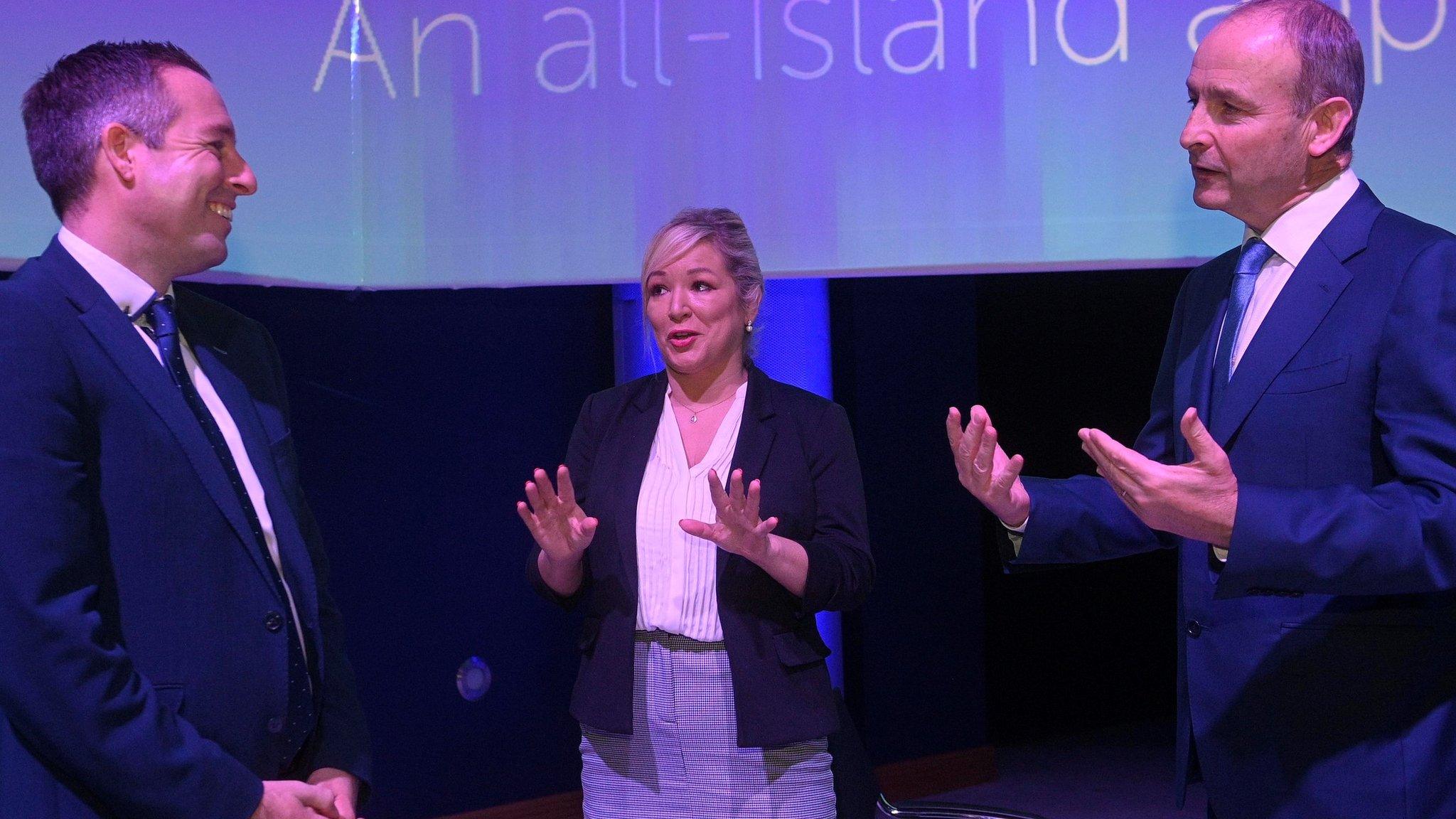
- Published1 November 2021
